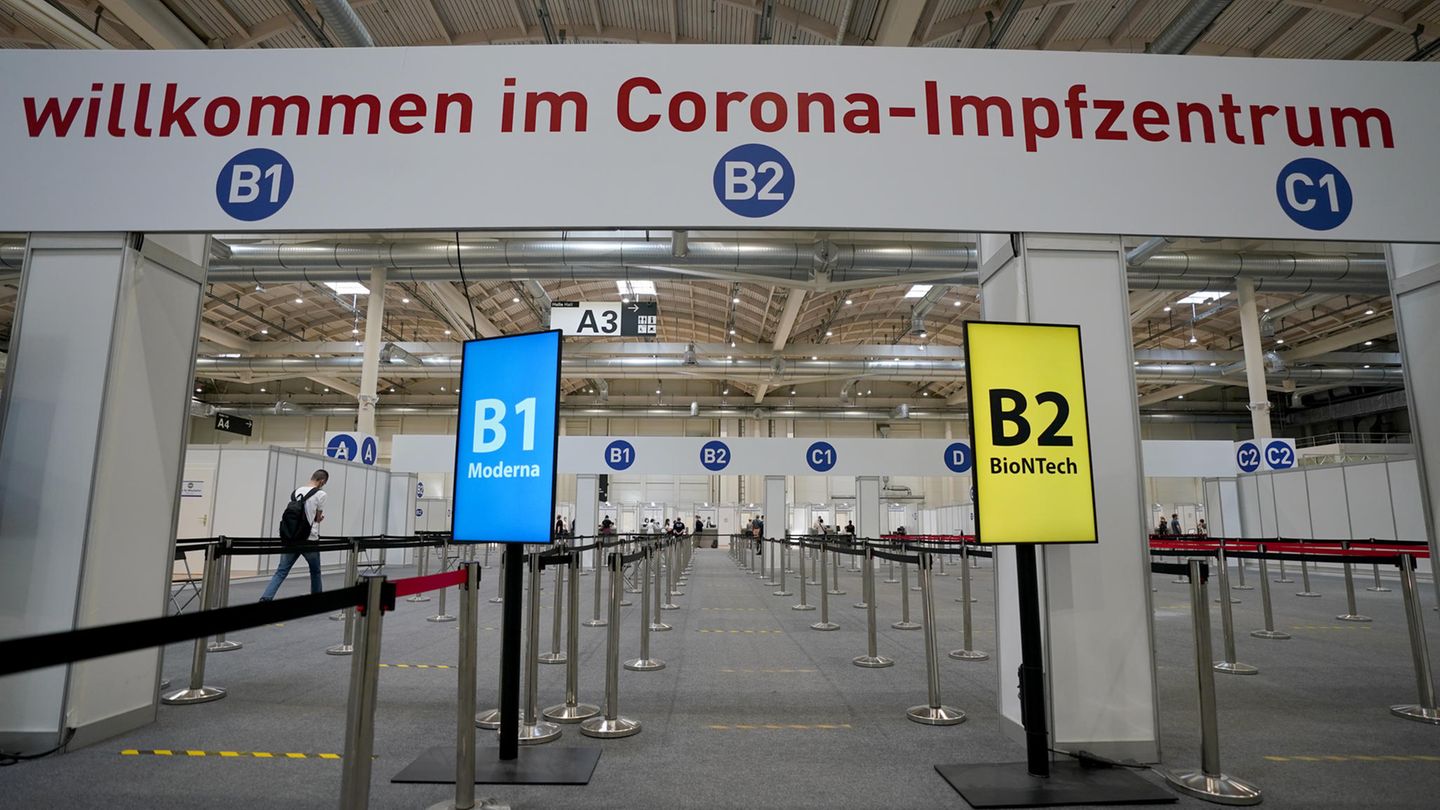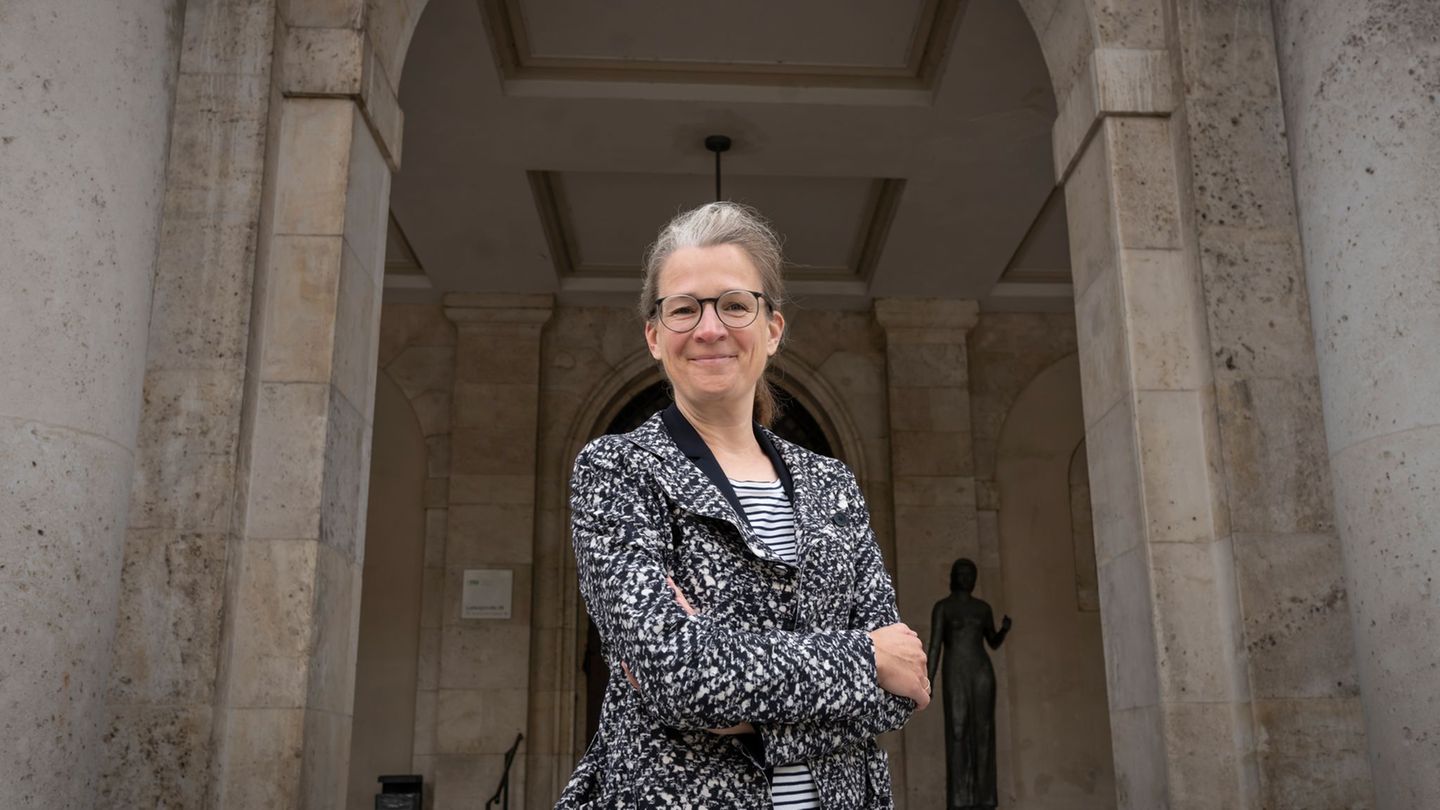The incidences are increasing. This worries many and raises two questions: Is the fourth corona wave imminent? And can we avert it in time with the vaccination? The most important questions and answers about vaccination readiness at a glance.
How many people in Germany are currently unvaccinated?
By Wednesday (August 4), 53.6 percent of people living in Germany (44.6 million) had been fully vaccinated. 62.1 percent (51.6 million) had received at least one dose of vaccine. With a total population aged 18 and over – who generally recommend vaccination – of 69.4 million, just under 18 million adults remain who have not yet received a vaccine dose.
“Even if the vaccination rate is currently falling – the willingness to vaccinate has risen continuously in the past few months,” says Cornelia Betsch from the University of Erfurt. She heads the Cosmo study, which has been surveying almost 1,000 adults up to 74 years of age about the corona pandemic every two weeks since March 2020 – most recently in mid-July.
What do we know about the unvaccinated people?
“The vaccination rates rise with age,” says Nora Schmid-Küpke, who heads the Covimo study on Covid 19 vaccination readiness and acceptance at the Robert Koch Institute (RKI). “This is of course also due to the fact that at the beginning we had a prioritized allocation of vaccines” – that is, older people could be vaccinated earlier.
In the Cosmo study in mid-July, 10 percent of the participants did not want to be vaccinated under any circumstances. These “refusers” represented 41 percent of the unvaccinated participants. The remaining unvaccinated people either want to be vaccinated or are unsure or hesitant. “If you compare the objectors with the rest of the unvaccinated, the objectors tend to have safety concerns and consider the vaccination superfluous, as Covid-19 does not pose a threat in their perception,” according to the Cosmo study.
What is known about the reasons for vaccination skepticism?
There are many reasons. Schmid-Küpke emphasizes that there are just as few people who are typically unvaccinated or who are typically vaccinated.
The main reason is a lack of confidence, especially in the safety of the vaccination, says the Erfurt psychologist Betsch. In addition, a large proportion of the respondents (“free riders”) believe that you do not need to be vaccinated if enough others do. “Instead of becoming active yourself, you prefer to rely on others,” says Betsch. In addition, some people do not see Sars-CoV-2 as a threat to themselves.
Another reason: The protective effect of vaccination is significantly underestimated by many unvaccinated people, to less than 50 percent. In fact, according to the RKI, protection against hospitalization is more than 90 percent – even with the Delta variant. “It should be more emphatically communicated that the vaccine with both the Biontech and Astrazeneca vaccines almost certainly protects against hospitalization,” advises the Cosmo study.
A very important factor is – to put it casually – comfort: Stress, time constraints and structural hurdles prevent many people from arranging a vaccination appointment. According to the Cosmo study, many of them can be reached through low-threshold offers.
What role does gender play?
Different factors come into play here for women and men. “In women, confidence in the safety of the vaccination is somewhat lower,” says Betsch. For example, the myth persists that vaccination affects fertility. Men, on the other hand, are more likely to be held back by practical hurdles.
Is there a low willingness to vaccinate in certain industries such as nursing?
The Covimo data do not provide any clues for this; Schmid-Küpke sees previously recorded differences in the quotas primarily due to the initial sequence of vaccinations. According to their data, teachers and educators are also largely vaccinated. For hospital staff, an RKI survey showed that very high vaccination rates were achieved as early as April.
How is the willingness to vaccinate among people who hardly speak German?
It is difficult to say because knowledge of German is a prerequisite in many surveys. “So far we have seen that people without a migration background are slightly better vaccinated than those with,” said Schmid-Küpke. The origin is not the only determining factor – rather, different points such as age, gender, region or occupation have to be considered together.
How much potential for vaccinations is there still among the unvaccinated?
Based on the results of the Cosmo study, the psychologist Betsch believes that a vaccination rate of 80 percent in the age group surveyed (18 to 74 years) is possible. However, she emphasizes that this maximum value is difficult to achieve. But: “Already 10 percent more willingness to vaccinate can make a big difference.” Uwe Wagschal from the University of Freiburg, who heads the “Political Panel Germany” survey, assumes that more than 80 percent of adults are willing to vaccinate.
Betsch sees little potential in older people. “Especially in the group of older respondents over 60, almost all those who want to be vaccinated have already been vaccinated,” says the Cosmo study. “Those who are not vaccinated now tend not to want it either.” RKI expert Schmid-Küpke also emphasizes that there is only a small gap in people over 60. There is a greater chance of reaching people who are ready to be vaccinated or who are indecisive with the 18 to 59 year olds.
Schmid-Küpke is optimistic that the target vaccination rates issued by the RKI can be achieved: According to this, at least 85 percent of 12 to 59 year olds and 90 percent of seniors aged 60 and over should be fully vaccinated. If these quotas were reached in time, “a pronounced fourth wave in the coming autumn / winter seems unlikely,” the institute declared at the beginning of July.
Which concrete measures could increase the vaccination rate?
Especially younger people with a rather low risk perception have to make the vaccination as easy as possible, says Schmid-Küpke. “Vaccination practically in passing”, as is done at Ikea in Berlin. The Cosmo study found: “Those who are not objectors are more likely to feel prevented from vaccinating by practical barriers.” She advises: “Practical barriers should be dismantled”, access to vaccinations should be “as easy as possible” – for example in pharmacies or shopping centers, but also in the workplace and in the education sector. “In this way, large groups with many contacts can be reached and the effort to get a vaccination is drastically reduced.” In this way, you reach not only younger people, but also men, people with children, people with a lower level of education or a migrant background.
How do people feel about compulsory vaccinations?
“Currently only about 14 percent of the respondents are clearly in favor of a general vaccination requirement (strong agreement),” according to the latest Cosmo survey in mid-July. “That is the lowest value since the survey began.” Basically, compulsory vaccination can cause a lot of trouble and ultimately be counterproductive, emphasizes Betsch: “People could organize out of anger to protest against corona measures – as recently in France. They may then fail to take other protective measures and also reject other vaccinations . Then we would have won nothing. “
The Freiburg political scientist Wagschal is also critical of the obligation to vaccinate, not only for constitutional reasons: “Such coercive measures do not fit in with a free constitutional state,” he emphasizes. One should rather improve positive incentives and low-threshold vaccination offers for groups that are difficult to reach. There could also be better education in different languages.
David William is a talented author who has made a name for himself in the world of writing. He is a professional author who writes on a wide range of topics, from general interest to opinion news. David is currently working as a writer at 24 hours worlds where he brings his unique perspective and in-depth research to his articles, making them both informative and engaging.




